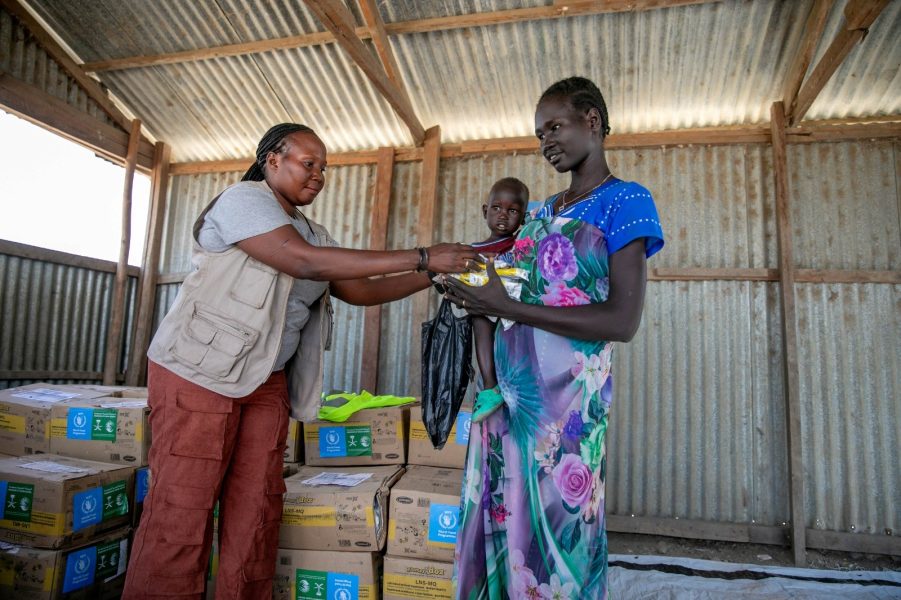
More than 6,000 vulnerable women and children in South Sudan’s flood-affected Unity State have received life-saving nutrition support, thanks to a $400,000 contribution from the Kingdom of Saudi Arabia.
In a statement on Tuesday, World Food Program said the contribution channelled through the King Salman Humanitarian Aid and Relief Centre (KSrelief) facilitated the procurement and distribution of specialized nutritious foods, including Super Cereal Plus—a fortified blended food—and Lipid-based Nutrient Supplements like Plumpy Doz.
These interventions aim to prevent acute malnutrition among children aged six months and older, as well as pregnant and breastfeeding women.
“This support comes at a critical time,” stated Mary-Ellen McGroarty, WFP Country Director in South Sudan. “As hunger and malnutrition continue to outpace available resources, support for nutrition programs is more vital than ever. Providing the right nutrition to young children and mothers at the right time not only saves lives but also gives children a chance to grow, learn, and reach their full potential.”
The aid arrives as South Sudan confronts one of its most severe food crises in recent history.
According to WFP, nearly 7.7 million people, over 60% of the population, are facing crisis or worse levels of food insecurity (IPC Phase 3 or above). This includes an estimated 2.1 million children at risk of malnutrition in 2025.
Years of relentless flooding in Bentiu have displaced communities, destroyed farmland, and worsened sanitation conditions, increasing the risk of malnutrition, especially among young children.
“This partnership with KSrelief is a testament to what can be achieved through global collaboration,” McGroarty added. “Their continued support is helping us reach the most vulnerable when they need it most.”
KSrelief and WFP have maintained a strong global partnership since the Saudi agency’s inception in 2015, with collaborative efforts in South Sudan beginning in 2018.
This latest contribution reinforces shared commitment to improving health and nutrition outcomes in some of the world’s most challenging humanitarian contexts.

